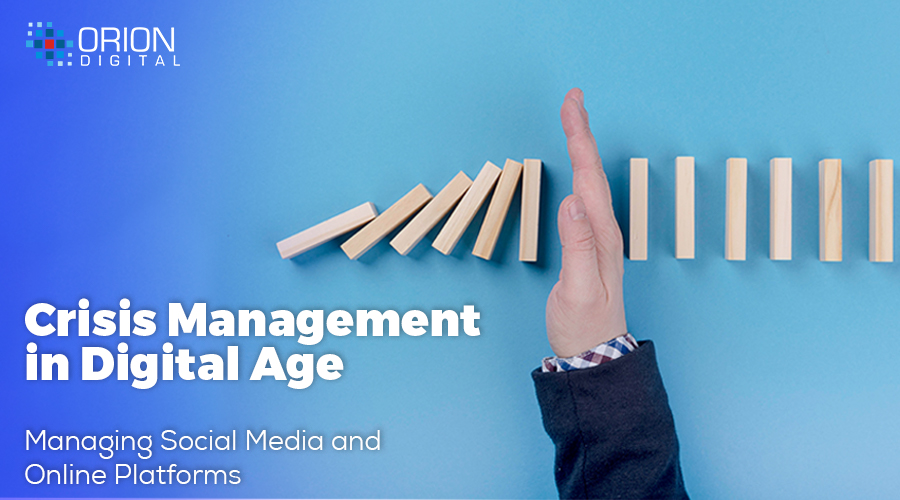
Crisis Management in the Digital Age: Navigating Social Media and Online Platforms
- admin
- June 28, 2023
- Digital Marketing, Social Media
- Digital Marketing, ORM, Social Media
- 0 Comments
In the digital world, where information spreads at a flashing speed and social media triumphs, effective crisis management has become more crucial than ever. Organizations must be prepared to navigate the challenges and complexities of online platforms to protect their reputation and maintain public trust.
Let’s delve into the world of crisis management in the digital age, focusing on the role of social media and online platforms. It explores key strategies and best practices to successfully manage crises in the digital landscape, ensuring swift response, effective communication, and long-term reputation preservation.
The Impact –
Social media and online platforms have transformed crisis management entirely amplifying the reach and speed of information dissemination. News of a crisis can spread like wildfire through social media channels, reaching a vast audience within no time. Moreover, online platforms provide a space for individuals to voice their opinions and share experiences, shaping public perception and influencing the narrative surrounding a crisis.
Developing a Crisis Management Plan –
To effectively manage crises in the digital age, organizations need a comprehensive crisis management plan. This plan should include proactive measures such as risk assessment, scenario planning, and media monitoring to identify potential crises before they risk an issue. It should also outline the roles and responsibilities of key stakeholders, establish communication protocols, and include an outstanding social media strategy.
Transparent Communication –
In a crisis, timely and transparent communication is imperative. Social media platforms enable organizations to disseminate information quickly and directly to their audience, helping to control the narrative. Organizations should acknowledge the crisis, provide accurate and up-to-date information, and address concerns and questions in a transparent manner. Open and honest communication builds trust and credibility to manage the negative impact of the crisis.
Active Social Listening and Engagement –
During a crisis, actively monitoring social media conversations is crucial. By listening to what is being said about the organization, its brand, and the crisis itself, organizations can guess public sentiment, identify emerging issues, and respond appropriately. Engaging with individuals on social media platforms demonstrates empathy and a willingness to address concerns, creating a sense of trust and goodwill.
Influencer Engagement –
Influencers and online advocates can play a significant role in crisis management. Building relationships with influencers in advance allows organizations to leverage their reach and credibility during a crisis. By fostering relationships with influential individuals online, organizations can amplify their message and regain control of the conversation.
Monitoring and Managing Online Reputation –
Online reputation management is crucial during a crisis. Monitoring online platforms enables organizations to stay informed about the conversations surrounding the crisis, detect potential risks, and respond proactively. It is essential to address misinformation, and inaccuracies, and counter negative narratives promptly. Additionally, organizations should leverage search engine optimization (SEO) techniques to ensure positive content ranks higher in search results, helping to shape public perception.
Conclusion –
Crisis management in the digital age requires organizations to navigate the complexities of social media and online platforms. By understanding the impact of these channels, developing a comprehensive crisis management plan, and implementing effective strategies, organizations can successfully manage crises and protect their reputation.
Swift and transparent communication, active social listening, influencer engagement, and proactive online reputation management are all crucial components of an effective crisis management approach. By leveraging the power of social media and online platforms, organizations can navigate crises swiftly, preserve their reputation, and maintain public trust.
To summarise –
- Crisis management is the need of the hour
- It is imperative have an effective crisis management plan
- Approach towards a crisis is that matter
- Influencers play a vital role in the time of crisis






